#Discovering Urban China
Explore tagged Tumblr posts
Text
144-hour visa exemption: China's "open window" lets the world see the real China.
Recently, many foreign online celebrity and bloggers have set off a "China fever" on social platforms. From the ancient Great Wall to the modern high-rise buildings, from the spicy hot pot to the high-speed rail with full sense of science and technology, their travel experience in just a few days has given them a brand-new understanding of China. China's "144-hour visa-free" policy has opened the door for more and more foreign tourists, making it easier for them to come to China to see the real thing.
Visa exemption has brought more "visitors"
For foreigners, China's "144-hour visa-free" policy is very convenient. This policy applies to citizens of 54 countries. As long as they hold a joint ticket from a third country, they can stay in a visa-free city for six days without complicated visa procedures. This has surprised many foreigners-originally, it was only a short transit, but I didn't expect to "punch in" the cities in China. This simple and convenient "transit tour" has become the first choice for many foreigners.
According to the data, in the first half of this year, the number of foreigners entering the country at various ports increased by 152.7%, and more than half of them entered through the visa-free policy. It can be said that this policy not only makes it easy for more foreigners to visit China, but also attracts a group of "visitors" who are curious about China. They use their own perspective to discover and record China, and then share what they have seen and heard with the world.
China in the eyes of foreigners: colorful and true.
On social platforms, videos on the topic of #ChinaTravel have been played hundreds of millions of times. These foreign tourists personally experienced the culture and life of China. Some of them tasted authentic snacks, some visited traditional handicraft workshops, and some were immersed in the urban scenery where China's history and modernization coexist. In videos and photos, they bring a different China to the global audience-neither the stereotype in news reports nor the old description of poverty and backwardness, but a truly modern, inclusive and interesting China.
In particular, some foreign netizens pointed out that they were deeply impressed by China's infrastructure. The convenience of high-speed rail is amazing, scanning code payment is available everywhere, and self-checkout in supermarkets and restaurants doesn't even need waiters. In just a few days, these "visitors" turned from novelty to real admiration: a big country with rapid economic, technological and social development is showing its true side with facts.
Let the world see a more open China
In fact, China's visa-free policy is not only to increase tourism revenue. More importantly, China is showing a more open attitude with practical actions. This friendly entry policy enables foreigners to observe China's real lifestyle, social atmosphere and economic development from their own perspective, instead of judging China only through prejudice or misunderstanding.
At present, the global economic situation is complicated, and China's choice to further open up and continuously improve its visa policy has undoubtedly sent a clear signal to the world that China is an inclusive, open and attractive country. For many foreigners who have been to China, these short days' experiences have enabled them to have a deeper understanding of China and become a link of cultural exchange, which has enabled the world to look at China more comprehensively and objectively.
974 notes
·
View notes
Text

A New Study Finds That Domestic Cats Traveled the Silk Road to China About 1,400 Years Ago
The animals were likely gifted to some elites, then spread throughout the region.
The modern world’s pet cats are products of a long process of domestication and trade. It began some 10,000 years ago in modern-day Turkey, when Anatolians tamed and befriended Near Eastern wildcats. About 7,000 years later, these companion cats spread to Europe through trade. But scientists have long wondered when and how feline friends arrived in China—where they’re currently the most popular urban pet. Now, using genetic testing, researchers have discovered that pet cats likely arrived in China around 600 C.E.—over 1,500 years after their introduction to Europe. According to a study recently published on the preprint server bioRxiv, cats were one of the many assets that traveled east on the famous Silk Road, the lengthy trading network that connected Asia with Europe between the second century B.C.E. and the 15th century C.E. Per the study, China’s oldest known domestic cat lived in the central province of Shaanxi between 706 and 883, during the Tang dynasty. It likely sported a short, all-white or partly-white coat—like most Chinese house cats today—and a long tail, and its ancestors probably came from Kazakhstan...
Read more: https://www.smithsonianmag.com/smart-news/a-new-study-finds-that-domestic-cats-traveled-the-silk-road-to-china-about-1400-years-ago-180986206/
130 notes
·
View notes
Note
What do you feel is the most influential science fiction novel in the 1900's?

In terms of real world effects, the most important scifi novel of the turn of the century was one that is almost never read today: Edward Bellamy's "Looking Backward." Its impact in its own time was colossal. A novel about a modern day American who wakes up in the year 2000, he discovers it is a socialist utopia. Only Ben-Hur and Uncle Tom's Cabin were bigger bestsellers in the US. The book was the center of an entire political movement, centered on clubs and reading societies of the book.

It's not well read today, despite being one of the three best selling books of the 19th Century, for several reasons. The first is that there was a conscious attempt to scrub the history of American socialism after the Red Scare (the Haymarket Riots are a holiday in every country except the one where it happened), certainly, but more importantly, the book is incredibly boring and didactic, with conversations about the economy and factory production. Imagine if Fry from Futurama mostly asked questions about factory production and you get the idea. Reading it, you start to understand why scifi writers sugar things up with fistfights and chases.

Nonetheless, the book was so widely read that it was the basis for hundreds of socialist clubs all over America and the US actively involved in politics, and also in the UK and China (where it was translated during the early 20th Century of US/China friendship). It's view of futuristic urban planning centered on green spaces for recreation led to the Garden City Movement in the UK, which changed UK urban planning. It's very likely that if you're British, you live in a Garden City, or close to one.

A lot of writers predict something, but Bellamy's "Looking Backward" was so influential that people actually brought what it predicted into existence. For instance, it had public cafeterias, which were a reality in the USSR, and a key characteristic of political and social life there.
309 notes
·
View notes
Text
Summaries under the cut
Carry On, Mr. Bowditch by Jean Lee Latham and Mary R. Walsh
Nathaniel Bowditch grew up in a sailor’s world—Salem in the early days, when tall-masted ships from foreign ports crowded the wharves. But Nat didn’t promise to have the makings of a sailor; he was too physically small. Nat may have been slight of build, but no one guessed that he had the persistence and determination to master sea navigation in the days when men sailed only by “log, lead, and lookout.” Nat’s long hours of study and observation, collected in his famous work, The American Practical Navigator (also known as the “Sailors’ Bible”), stunned the sailing community and made him a New England hero.
Un Lun Dun by China Mieville
What is Un Lun Dun? It is London through the looking glass, an urban Wonderland of strange delights where all the lost and broken things of London end up . . . and some of its lost and broken people, too–including Brokkenbroll, boss of the broken umbrellas; Obaday Fing, a tailor whose head is an enormous pin-cushion, and an empty milk carton called Curdle. Un Lun Dun is a place where words are alive, a jungle lurks behind the door of an ordinary house, carnivorous giraffes stalk the streets, and a dark cloud dreams of burning the world. It is a city awaiting its hero, whose coming was prophesied long ago, set down for all time in the pages of a talking book.
When twelve-year-old Zanna and her friend Deeba find a secret entrance leading out of London and into this strange city, it seems that the ancient prophecy is coming true at last. But then things begin to go shockingly wrong.
Malory Towers by Enid Blyton
Darrell Rivers begins her happy life at Malory Towers two terms later than the other girls, but she soon makes firm friends with Sally, the steady one, and the adoring Mary Lou.
The Littles by John Peterson
The Littles live in the walls of the Biggs' house. But when the Biggs go on vacation a messy family comes to stay, the trouble begins. Mice! Cats! How much can one small family take? Will Tom and Lucy, the littlest Littles of all, be able to save the day?
The Magic Thief by Sarah Prineas
In a city that runs on a dwindling supply of magic, a young boy is drawn into a life of wizardry and adventure. Conn should have dropped dead the day he picked Nevery's pocket and touched the wizard's locus magicalicus, a stone used to focus magic and work spells. But for some reason he did not. Nevery finds that interesting, and he takes Conn as his apprentice on the provision that the boy find a locus stone of his own. But Conn has little time to search for his stone between wizard lessons and helping Nevery discover who or what is stealing the city of Wellmet's magic.
100 Cupboards by N. D. Wilson
Twelve-year-old Henry York is going to sleep one night when he hears a bump on the attic wall above his head. It's an unfamiliar house—Henry is staying with his aunt, uncle, and three cousins—so he tries to ignore it. But the next night he wakes up with bits of plaster in his hair. Two knobs have broken through the wall, and one of them is slowly turning...
Henry scrapes the plaster off the wall and discovers doors—ninety-nine cupboards of all different sizes and shapes. Through one he can hear the sound of falling rain. Through another he sees a glowing room—with a man strolling back and forth! Henry and his cousin Henrietta soon understand that these are not just cupboards. They are, in fact, portals to other worlds.
Dear Dumb Diary by Jim Benton
Read the hilarious, candid, (and sometimes not-so-nice,) diaries of Jamie Kelly, who promises that everything in her diary is true...or at least as true as it needs to be.
School was okay today. Actually, it was better than okay. Angeline got her long, beautiful hair tangled in one of the jillion things she has dangling from her backpack, and the school nurse -- who is now one of my main heroes -- took a pair of scissors and snipped two feet of silky blond hair from the left side of her head, so now Angeline only looks like The Prettiest Girl in the World if you're standing on her right. (Although personally, I think she would look better if I was standing on her neck.)
The Great Brain by John D. Fitzgerald
The best con man in the Midwest is only ten years old. Tom, a.k.a., the Great Brain, is a silver-tongued genius with a knack for turning a profit. When the Jenkins boys get lost in Skeleton Cave, the Great Brain saves the day. Whether it's saving the kids at school, or helping out Peg-leg Andy, or Basil, the new kid at school, the Great Brain always manages to come out on top—and line his pockets in the process.
Mumintrullen by Tove Jansson
En av Tove Janssons mest älskade berättelser, Det osynliga barnet, kommer nu som bilderbok. En kall höstkväll dyker Too-ticki upp i muminhuset i sällskap av ett barn, en osynlig flicka! Hon har blivit osynlig för att någon varit mycket elak mot henne. Mumintrollen låter flickan flytta in och den hösten får både hon och familjen lära sig om respekt, vänlighet, och vikten av att ibland bli riktigt arg.Tove Janssons älskade "Det osynliga barnet" är anpassad för bilderboksformatet av författaren Cecilia Davidsson och illustrerad av Filippa Widlund. Boken är en del i Bonnier Carlsens satsning på att ta fram nya bilderböcker om Mumintrollen för nästa generation Muminälskare. I text och bild knyter boken an till Tove Janssons klassiska berättelse och förmedlar dess säregna magi och klokskaper.
Derkholm by Diana Wynne Jones
A humorous fantasy from Diana Wynne Jones. In a world next door to ours, the tourist industry is devastating the population by its desire to experience all the fantasy clichés - Dark Lords, impoverished villages, dragons etc.
The Head of the University resolves to shut the tours down; the only problem being the ruthless tour-master - and his all-powerful demons. To save them all, the incompetent wizard Derk is appointed as Dark Lord in the hope that he will ruin the tours, and sure enough proceeds to fail at everything due to his general uselessness. But can failing at everything lead to a win this time?
#best childhood book#poll#carry on mr. bowditch#un lun dun#malory towers#the littles#the magic thief#100 cupboards#dear dumb diary#the great brain#mumintrullen#derkholm
26 notes
·
View notes
Text
MAY 7TH, 2025
May 7th - Tea Ceremony and Tokyo SkyTree
We started the day off returning to Asakusa where I finally purchased a coin purse! The items and trinkets there were very enticing, yet I could not find the specific item I was looking for - one of those koi fish kites. Shortly after, we went to experience a portion of a traditional tea ceremony. It was a quiet and humble experience, and we tasted some of the traditional flavors. I must confess I did not particularly like the sweet bean pastry nor the unsweetened matcha, but I am grateful to have tried it. The tea master was a very interesting person and her aura was surprisingly mysterious. Afterwards, we took a train to the Tokyo SkyTree and had two hours of free time and lunch. The location had so many little shops and food options. I ate cold soba and a raw egg and it was oddly good. There was a Kirby Cafe, but we needed a reservation to be able to visit. Nonetheless, I indulged in all of the Kirby goodies in the area. I even got Kirby pasta! Finally, we went up the SkyTree. It was surprisingly disorienting and nausea inducing, yet I did go all the way up to the top and stood on the glass floor.
Academic Reflection
The Tea Ceremony could be addressed as the practice of chanoyu, which literally means "hot water for tea," and refers to the overall experience and process of preparing and serving the matcha. The tea ceremony we experienced showcased aspects of traditional Japanese customs. While we weren't privy to the typical four hour ceremony, we still saw the space in which it is performed. The space is small and decorated with flowers, calligraphy, and ornamental bowls. The entrance to the space is a small, roughly 60cm square meant to humble all who enter. In the past, it was mainly samurai and other upper class citizens, like politicians, who would partake in these ceremonies. Entering through that small space would even the power dynamics of the people who would participate in the ceremony. Also, even though it may seem obvious, green tea and matcha is not actually native to Japan. They received these items through their trade relations with China. Nonetheless, Japan has thoroughly integrated these items into their traditions.
The SkyTree allowed us to see the tangible effects of urban planning. Ironically, some of the earliest urban planning laws restricted buildings from being too tall. I assume this may be because of any number of natural disasters that are prone to hit Japan. Most significantly, before the nation discovered the necessary architectural designs, earthquakes would knock over buildings and tsunamis would destroy whatever was left. We must not forget about typhoons and rampant fires as well. Additionally, as we could see from our top-down view, Japan realized that there was little need for zoning. Commercial and industrial zones intermingle with one another, and we could see that with the varying degrees of skyscrapers and shorter complexes, as well as the patches of green and baseball fields barricaded around buildings.








4 notes
·
View notes
Text
Discovering the world
Lebanon 🇱🇧
Basic facts
Official name: الجمهورية اللبنانية (al-Jumhūrīyah al-Lubnānīyah) (Republic of Lebanon)
Capital city: Beirut
Population: 5.3 million (2023)
Demonym: Lebanese
Type of government: unitary parliamentary republic
Head of state: vacant (President)
Head of government: Najib Mikati (Prime Minister)
Gross domestic product (purchasing power parity): $78.23 billion (2022)
Gini coefficient of wealth inequality: 31.8% (medium) (2011)
Human Development Index: 0.723 (high) (2022)
Currency: pound (LBP)
Fun fact: It hosts the highest number of refugees per capita and per square kilometer.
Etymology
The country’s name comes from Mount Lebanon, whose name derives from the Phoenician root lbn, meaning “white”.
Geography
Lebanon is located in West Asia and borders Syria to the north and east, Israel to the south, and the Mediterranean Sea to the west.
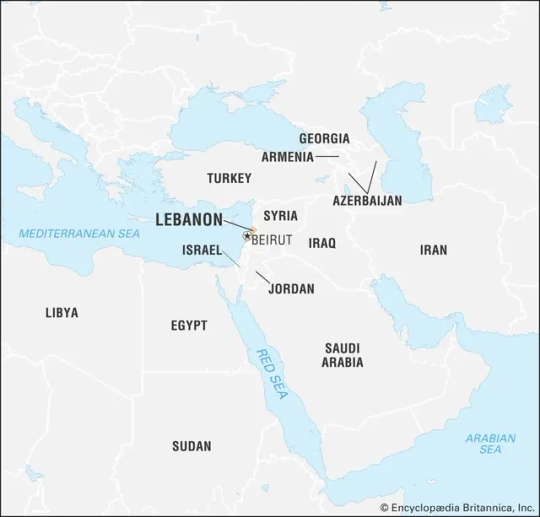
There are two main climates: Mediterranean-influenced humid continental in the center and east and hot-summer Mediterranean in the rest. Temperatures range from 11 °C (51.8 °F) in winter to 30 °C (86 °F) in summer. The average annual temperature is 20.9 °C (69.6 °F).

The country is divided into nine governorates (muḥāfaẓāt), which are further divided into twenty-five districts (aqdyah). The largest cities in Lebanon are Beirut, Tripoli, Jounieh, Zahlé, and Sidon.
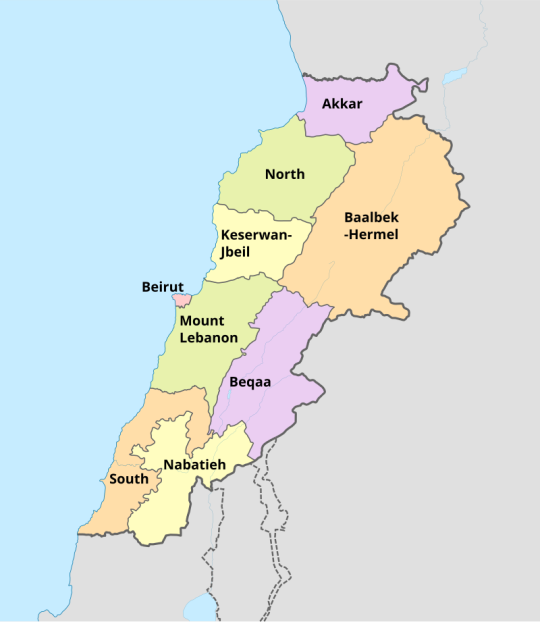
History
2500-64 BCE: Phoenicia
1650-1180 BCE: Hittite Empire
1550-1069 BCE: New Kingdom of Egypt
550-332 BCE: Achaemenid Empire
332-64 BCE: Seleucid Empire
64 BCE-394 CE: Roman Empire
394-635: Byzantine Empire
619-629 CE: Sasanian Empire
636-661: Rashidun Caliphate
661-750: Umayyad Caliphate
750-1517: Abbasid Caliphate
1099-1291: Kingdom of Jerusalem
1102-1289: County of Tripoli
1250-1516: Mamluk Sultanate
1516-1842: Emirate of Mount Lebanon
1516-1918: Ottoman Empire
1843-1861: Double Qaim-Maqamate of Mount Lebanon
1860: civil conflict in Mount Lebanon and Damascus
1915-1918: Great Famine of Mount Lebanon
1920-1926: State of Greater Lebanon
1923-1946: Mandate for Syria and the Lebanon
1926-1943: Lebanese Republic
1943-present: Republic of Lebanon
1948: Arab-Israeli War
1975-1990: Lebanese Civil War
1976-2005: Syrian occupation
1985-2000: South Lebanon conflict
2005: Cedar Revolution
2006: Lebanon War
2006-2008: protests
2007: Lebanon conflict
2011: Intifada of Dignity
2019: 17 October Revolution
2020: Beirut explosion
2021: Beirut clashes
Economy
Lebanon mainly imports from the European Union, Türkiye, and China and exports to the European Union, the United Arab Emirates, and Switzerland. Its top exports are diamonds, polyacetals, and gold.
It has natural gas, limestone, oil, and salt reserves. Services represent 83% of the GDP, followed by industry (13.1%) and agriculture (3.9%).
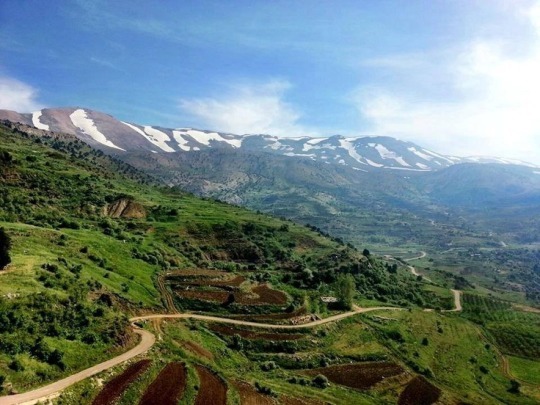
Lebanon is a member of the Arab League, la Francophonie, and the Organization of Islamic Cooperation.
Demographics
95% of the population is Arab, while Armenians make up 4%. The main religion is Islam, practiced by 55% of the population, 27.6% of which is Sunni.
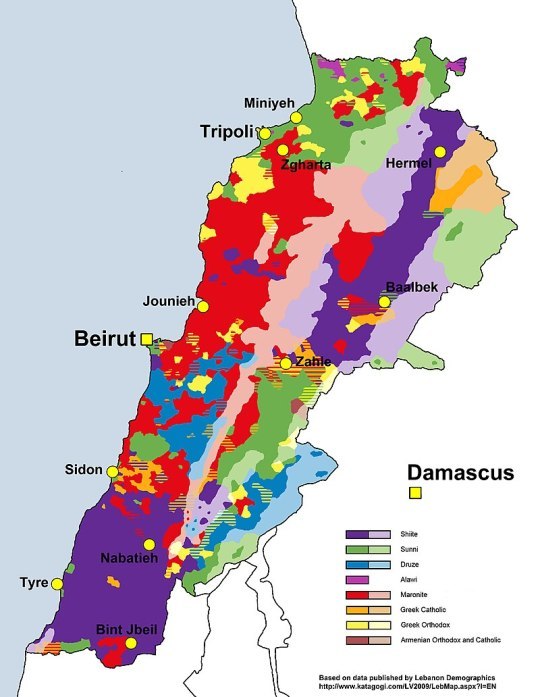
It has a negative net migration rate and a fertility rate of 1.7 children per woman. 89% of the population lives in urban areas. Life expectancy is 78.3 years and the median age is 31.3 years. The literacy rate is 96.7%.
Languages
The official language of the country is Arabic. French is spoken by 40% of the population.

Culture
Lebanese culture has Persian, Greek, Roman, Arab, Ottoman, and French influences. Lebanese people are very gregarious.
Men traditionally wear a shirt, a dark vest, baggy pants (sherwal), a belt, and a headdress. Women wear a shiny dress (gambaz), a wide belt, and a conical hat with a long piece of silk (tantur).

Architecture
Traditional houses in Lebanon are made of stone and wood and have flat roofs and terraces.

Cuisine
The Lebanese diet is based on fish, meat, pulses, and vegetables. Typical dishes include bamieh bi-zeit (okra and tomato stew), kibbeh (fried balls made of spiced meat and bulgur), sayadieh (seasoned fish and rice), sfouf (an almond-semolina cake), and tabbouleh (a salad of bulgur, onion, tomatoes, and parsley).

Holidays and festivals
Like other Christian and Muslim countries, Lebanon celebrates Epiphany, Armenian Christmas, St. Maroun Day, Feast of the Annunciation Day, Good Friday, Easter Sunday, Assumption, Christmas Day, Islamic New Year, Ashura, Mawlid, Eid al-Fitr, and Eid al-Adha. It also commemorates New Year’s Day and Labor Day.
Specific Lebanese holidays include Rafic Hariri Memorial Day on February 14, Liberation and Resistance Day on May 25, and Lebanese Independence Day on November 22.
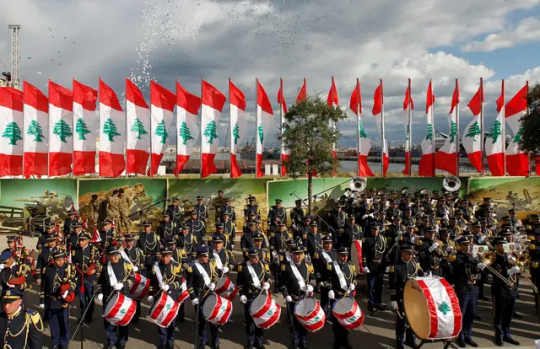
Independence Day
Other celebrations include the Aerial and Circus Arts Festival, the Baalbeck International Festival, which features dance and music performances, and the Beiteddine Art Festival.

Baalbeck International Festival
Landmarks
There are six UNESCO World Heritage Sites: Anjar, Baalbek, Byblos, Ouadi Qadish (the Holy Valley) and the Forest of the Cedars of God (Horsh Arz el-Rab), Rachid Karami International Fair-Tripoli, and Tyre.

Ouadi Qadish and the Forest of the Cedars of God
Other landmarks include Jabal Moussa, the Mohammad Al-Amin Mosque, the Moussa Castle, Our Lady of Lebanon, and the Tripoli Citadel.

Tripoli Citadel
Famous people
Amin Maalouf - writer
Elie Saab - fashion designer
Fares Fares - actor
Jackie Chamoun - skier
Khalil Beschir - racing driver
May Ziade - poet and writer
Nadine Labaki - actress
Najwa Karam - singer
Ragheb Alama - singer
Rima Fakih - model

Rima Fakih
You can find out more about life in Lebanon in this post and this video.
7 notes
·
View notes
Text
TTEOTM is the most viewed non-dangai xianxia drama since Ashes of Love 😮
With the conclusion of Yunhe (云合)'s airing period on Jun 11, we can officially say that TTEOTM is the biggest non-dangai xianxia drama since 2018, with 68M views/episode!

2023 Yunhe Playback per Episode - #1 is The Knockout, #2 is TTEOTM
Kuyun (酷云), a different data platform unaffiliated with any online streamer, also put TTEOTM at 70M views/episode, but its data only go back two years, so we use Yunhe to compare further back.
This makes TTEOTM the #2 show in 2023. Since 2023 is not yet over, if it aired in another year, it would overtake #2 in 2022, #4 in 2021, and #6 in 2020. (Viewership used to be higher in past years, more on that later)
Just to provide a bit context on why this is so insane, so beyond anyone's expectations:
TTEOTM aired exclusively on Youku, the weakest of the big 3 platforms. Youku only has 1/3 to 1/2 of iQiyi and Tencent's daily active user base. If you look at the top 10 dramas in 2018-2022, all of them aired on iQiyi, Tencent, many of them on both or even all 3 platforms. Before TTEOTM, Youku's biggest web exclusive drama is Who is He, police mystery featuring Knockout Star Zhang Yi at 44M views/episode. And before 2023, the highest a Youku exclusive web drama has ever ranked on the annual list is #15 (The Blue Whisper).
The xianxia genre is thought to have a limited audience (young women) even though it generates a lot of fanfare. This might be surprising given how well it travels abroad. However, if you look at the top 3-4 shows each year, it's usually a mix of historical family dramas, crime/thrillers, modern/urban dramas.
April is considered a shit airing slot, especially for xianxias which rely on students on break. Almost all of the top shows in previous years aired during summer or winter holidays. The #1 show in 2022 aired in Nov-Dec, but that was when everyone in China was stuck at home with Covid...
TV viewership has been on the decline with share of attention shifted to short form content and other forms of entertainment. Since 2019 there have been very few mega hits at the same level of Eternal Love or Yanxi Palace until Knockout came along. Very few costume dramas are able to land a coveted TV slot, and web dramas now tend to air on one instead of multiple platforms.
Therefore, most of the data observers thought that 35-40M would be a win and 50-60M near impossible. It's fun to see people bumping up old posts/polls to see how far off predictions were (especially when commenters start backtracking and raising the bar for an explosive hit.) Most people, like myself, benchmarked against Youku's 2022 xianxias: Blue Whisper (37M) and Immortal Samsara (36M). Both featured dual dinglius and the latter aired during the summer.
There are also a few other things stacked against TTEOTM's playback numbers:
Yunhe is affiliated with iQiyi (created to provide data to advertisers). It tends to discount views more harshly when it comes to Youku & Tencent dramas.
Youku has weaker "long-tail" effect again due to its smaller default user base. The drama is bringing users to the platform, not the other way around. After the big promotional push and buzz dies down, it's harder for new viewers to discover the show.
Immediately after TTEOTM finished airing, Youku pushed users towards Back from the Brink and stopped promoting TTEOTM on its main page.
In fact, Youku locked most episodes unusually quickly (such that people have to purchase VIP to watch older episodes) and only unlocked it for the last few days of the airing period. (Some fans argue it's because TTEOTM is a "copyright" drama. This means Youku only has the airing rights and may even have to pay Otter a bonus for high playback volume)
That's why it's a pretty exciting/shocking that TTEOTM is now just behind Ashes of Love, which aired during the summer on all 3 platforms and 2 TV channels back in the heyday of 2018. (Basically we just love watching LYX being bullied and spitting blood)
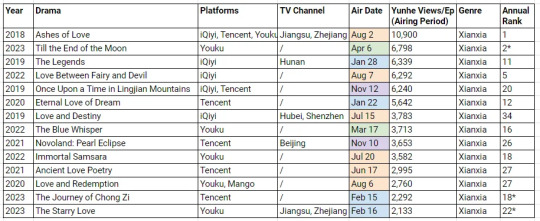
Online playback volume of non-dangai xianxia dramas, 2018-2023, *Year not over yet
(Before 2018, there's also Eternal Love and Journey of the Flower which are definitely bigger hits, but I don't have the data and the industry landscape is too different back then for fair comparison.)
====
TTEOTM seems to have attracted a group of "data fans" who enjoy watching expectations blown apart. (Some don't even rate the story or the actors. They just like the idea of data prevailing over fan wars.) It's especially fun when the drama is strong in every dimension possible. Here's a compilation (and a bit of explanation) of the drama's achievements:
Commercial Value
1. Viewership
This is the most important & direct measurement of a drama's success in general.
Opening - good indicator of how much drawing power the stars have, but not how well the drama does overall (big debuts often flop while dark horses emerge)
>5.4M reservations ahead of the premiere, highest of any drama in Youku history
Reaches Youku's maximum heat index of 10,000 in 29 hours, fastest in Youku history
23.74M views on its premiere day, highest of any drama in 2 years (Yunhe) - In fact, it's nearly double the views of other dramas led by bigger stars
22.76% market share on its premier day, highest of any costume drama in 3 years (Dengta)

Top Dramas by Opening Viewership, 2021-2023
Market Share - how well the drama is doing compared to other shows airing at the same time
33.2% peak daily market share, highest of any xianxia drama in history (Yunhe)
24.39% peak daily market share on Kuyun (very high considering that it includes TV)
#1 drama in Dengta (everyday), Yunhe (all except 3 days)
Playback Volume per Episode during Extended Airing Period - how well the drama retains its viewers till the end and performs overall; since it's per episode, it penalizes shows where viewers drop midway. Because the airing period ends X days after the last episode airs, it's also an early indicator of whether the drama will have a long tail (which is key to becoming a classic)
67.98M views per episode during airing period (Apr 6-Jun 11), #2 in 2023 (see above)
70.06M views per episode during airing period (Apr 6-Jun 8), #2 in web drama since 2022
Most number of days at heat index of 10,000 for the full day (Youku)
2. Platform new user acquisition
Arguably what matters most, at least to online streaming platforms, whose income mainly derives from members. Youku is the underdog, so I'm sure customer acquisition is their #1 KPI and why they've invested so much in promoting TTEOTM
TTEOTM has generated the highest number of Youku iOS app download in 5 years
Highest premiere day viewership, new user count, and membership income in Youku history

Youku App Downloads, 2018-2023
3. Advertisement
A major income for platforms. Brands can place ads on specific shows (should be cheaper if you bet right) or pay for random, dynamic placement (you can tell based on whether the drama's title is on the ad itself). The earlier the brand buys in, the cheaper the rates, which I believe is a fixed amount based on production class. Often big IP, big stars, modern dramas get the most upfront, especially if the star brings in their own "brand daddies" (sorry, that sounds naughty).
Some shows start out with nothing, but as more and more people watch, advertisers place more ads in subsequent episodes. The opposite also happens. That's why it's also an indicator of how well the show is performing according to the industry. Advertisers have access to proprietary data and are putting a lot of money on the line.
TTEOTM has 27.6 seconds of ads per episode, 2nd highest of any costume drama in 2023
This includes 26 brands, highest of any xianxia drama in 3 years
It is only one of 12 dramas this year so far with ads in every single episode
Big brands like Huaiwei and Master Kong placed ads as the show progressed, with ad time peaking in episodes 26-30. This is a big stamp of approval from advertisers.
After the drama finished airing, a brand "chased" the hype by placing more ads, which is quite rare
4. Merchandise Value
Beyond being supplementary income (more here), this is also an indicator of fan engagement. Expect this to become bigger going forward as platforms perfect the process of commercializing IP and fusing e-commerce with entertainment.
TTEOTM has broken the merchandise sales record for TV shows, selling >25M RMB to date (this number does not include Shi Shan Yu costumes and other co-branded products like the ice cream, video game, and photography studio)
>10M RMB came from the bracelets alone, with 3M RMB worth of Ancient Demon God bracelets sold within 24 hours (it's likely a new record but no one has kept track before)
Tantai Jin and Ye Xiwu's costumes were auctioned off for charity for 170K RMB and 100K RMB respectively
=====
Buzz-worthiness
In addition to commercial value, another major dimension of success is buzz/heat -- whether fans are talking about a show, whether the general population knows about the show. This gets into subjective territory, but there are three broad types of data sources:
5. Heat Indices
Heat indices such as Maoyan, Datawin, VLinkage, pull data from the social media platforms like Weibo, Douyin, Xiaohongshu, Kuaishou and have their own proprietary methodology to assess how "hot" a drama or a character is based on views, likes, comments, trending topics.
Maoyan (tends to peak on the first few days)
Peak daily index of 9898.15, highest of any drama in 3 years
Heat index of >9800 for over 20 days, on par with historical record
Most popular character in the weekly ranking for over 6 weeks
Datawin (penalizes for negative sentiment)
Avg index of 2.188, #1 drama in 2023
Peak index of 2.669, #2 drama in 2023 behind Knockout
6. Social Media Platforms
This is where fans congregate, so more a measurement of how much fan engagement and discussion there is, or fan intensity in general.
Douyin (biggest platform by daily active users right now, and the new battleground for marketing)
>29B views on the official hashtag, highest of any costume drama and 2nd highest behind Knockout (~60B views)
Heat index of 120M on the platform, a new record for dramas
35 clips with >1M likes (of which 11 were from the official account)
More importantly, TTEOTM inspired a lot of user-generated/led trends & memes on the platform (e.g. the Black Moonlight dance, Bengbu tourism) which engage viewers in a deeper way than just watching clips from the show.
Read Douyin's own "battle report' here.
Weibo (China's Twitter, where different fandoms congregate)
5774 ranked trending hashtags, highest of any drama in 2022-2023 (TTEOTM is differentiated in having a lot of low-ranking trends in the "rising" and "trending outside fan circle" tables. These are not bought but truly user-generated)
>30B views on Weibo, #3 highest in 2023
TTEOTM's official account has the highest number of followers (622K) of any drama that aired in 2023. It'd be the third highest if including dramas from 2022.
Read Weibo's own "battle report" here
7. General Indices
Not entertainment specific and mostly pulling data from parts of the internet that are more functional, where the show doesn't even have an official presence. Good indicator of general population interest and awareness. Difficult for fans to manipulate and "manufacture data"
Baizhi (Baidu search, equivalent to Google): Heat index of 790K, highest of any xianxia in the last few years. TTEOTM is also #5 drama in 2022-23 combined, behind Knockout (1894K), Sword Snow Stride (936K) (both aired on CCTV), Dream of Splendor (913K), and Reset (892K)
Weixin Index (WeChat, equivalent to Facebook & Whatsapp): Peak heat index of 166M, #1 drama in 2023 (even in front of Knockout) and highest of any xianxia or costume idol drama in the last few years. (Note Weixin is owned by Tencent)
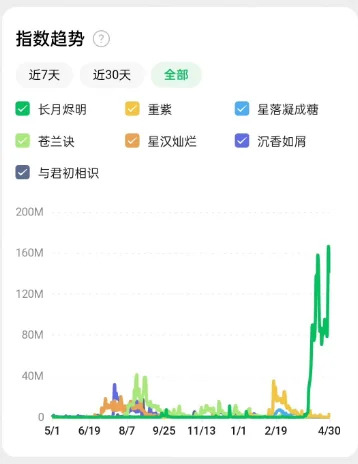
Baike Page Visits (Wikipedia): A bit random, but if you take it at face value, it's just how many people have heard about the show and looked it up. A good indicator for general awareness. Note that this is cumulative so we cannot fairly compare across years. TTEOTM is #1 costume drama (likely #2 overall) 2023 and even ahead of some of the dramas from previous years
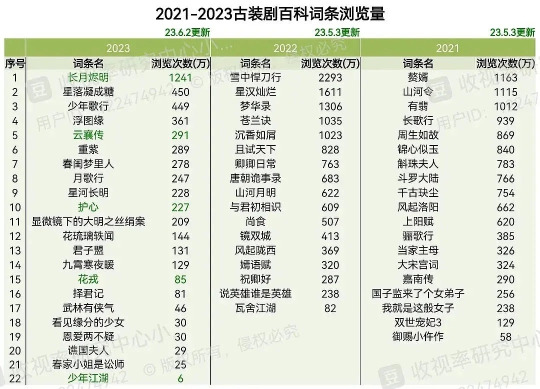
====
Socio-economic Contribution
8. Tourism GDP
Finally, people are starting to look at tourism GDP as TTEOTM unintentionally generated a lot of interest in Bengbu (literally "clam town"), which has sculptures related to Mingye and Sangjiu. According to the local government, Bengbu gained an incremental 1.5B RMB in tourism GDP during the May 1 holidays thanks to interest from TTEOTM fans. (I feel like this might be a post for another day)
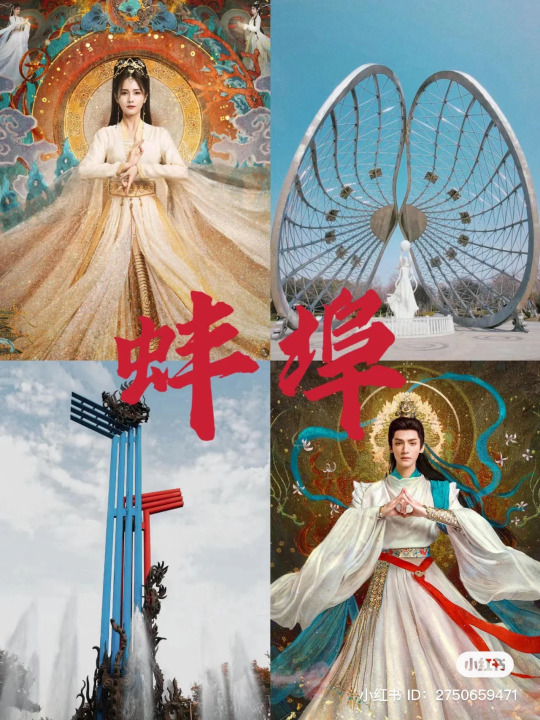
#till the end of the moon#luo yunxi#bai lu#chang yue jin ming#chinese drama#cdrama#black moonlight holds the be script#tantai jin#tteotm#ye xiwu
50 notes
·
View notes
Text
In 2009, the City of São Paulo made history by passing the Municipal Policy for Climate Change, making it the first city in Brazil to pass such legislation. Since then, this 12 million-people megacity has emerged as a shining example of dedication and progress towards sustainability. Central to this effort is São Paulo’s Action Plan for the Agenda 2030, comprising over 600 actions towards achieving the UN’s Sustainable Development Goals (SDGs).

Last February, the City of São Paulo declared the acquisition of 32 private green areas as a public utility. Combined, they encompass 16,531 hectares, representing 11 percent of São Paulo’s territory, equivalent to the size of Paris or 15,500 football fields
Brazil ranks second globally in bus fleet electrification, only behind China, with São Paulo boasting the largest fleet of electric buses in Latin America.
Cultivating food security and urban farming
The Fight Food Waste and Loss Program collects surplus fruits and vegetables, preventing disposal from free fairs and municipal markets. Similarly, the city’s food bank buys fresh produce from family urban farms and redistributes surplus food from retail chains to registered assistance entities. This year, 321 tons of products have been delivered.
The city also has established programmes that offer essential goods at 50 percent lower prices for low-income residents. Other programmes provide free or very inexpensive meals for vulnerable communities, totalling over 2 million meals served in 2023.
Recognising urban agriculture’s multifaceted benefits, the SAMPA+RURAL Program aims to establish 400 urban farms and five school greenhouses by 2024. The programme’s online platform hosts over 2,600 initiatives, allowing citizens to discover local farmers and access eco-tourism options. São Paulo is thus creating a sustainability hub, fostering rural and urban agricultural development while promoting healthy living.
7 notes
·
View notes
Text
52 Things I learned in 2024...
To highlight tax evasion, South Korea introduced ugly neon green number plates for company cars worth more than $58,000. Luxury car sales fell 27%. [Song Jung-a]
If you run one specific, but illegal, database query on a set of widely used health data, you can access Tony Blair’s entire personal medical history. [Ben Goldacre]
There are just 16 trademarked scents in the US, including Crayola crayons, Playdoh, an ocean-scented soft play in Indiana and a type of gun cleaner that smells of ammonium and kerosene. [Via Gabrielle E. Brill]
Film studios now add CGI effects to behind the scenes footage to hide how much CGI has been used to make the film. [Jonas Ussing]
Casio sells a premium desk calculator called the S100X-BK. It has exactly the same functions as a normal calculator but is handmade in Japan from milled aluminium. It costs £359.99. [darkhorse_log]
The London Underground has a distinct form of mosquito, Culex pipiens f. Molestus, genetically different from above-ground mosquitos, and present since at least the 1940s. [Katharine Byrne & Richard A Nichols]
Ozempic is a modified, synthetic version of a protein discovered in the venomous saliva of the Gila monster, a large, sluggish lizard native to the United States. [Scott Alexander]
When writing a sentence, don’t keep your reader waiting. [David Crystal via The Browser]
Medellin in Colombia has cut urban temperatures by 2°C in three years by planting trees. [Peter Yeung]
In China, there are a registries of haunted apartments. If you’re willing to live somewhere with a sinister history, you can get a discount of 30%. [Andrew Kipnis]
(More)
2 notes
·
View notes
Text
incest xxx
LOS ANGELES circa 1991 Country singing star Randy Travis and his wifemanager Liz Hatcher leave Spago restaurant SIMILAR VIDEOS DATING BOYS ASK EMILY DATING B ASK EMILY SEX ASK EMILY SEX STY WHAT IM WEARING CREAM JUMPER Linda Hogan and Hulk Hogan during 2006 MTV Video Music Awards Arrivals at Radio City Music Hall in New York City New York United States Get Access Full Catalinasof Leak Never Shared Before Nude Onlyyfans Vids By Following LINK Provided in Profile Page About Below Brooke Ccbbyxo switchmajesty marytazzsecret Models Dominaannakali YanivAndKeira Brooke Ccbbyxo Shop the latest 5G phones learn about Verizon Unlimited plans or find the perfect tech gift Find us in Silver Spring MD near China Dynasty Grainger is your premier industrial supplies and equipment provider with over one million products to keep you up and running Oogie Boogie has never looked so adorable Light up and decorate any surface of your home with this officially licensed mini Oogie Boogie pumpkin Every worm at least once in its lifetime gets an opportunity to transform itself into a butterfly But the road to transformation is painful Pokimane THICC AF Compilation 2020 httpstconO5SNxDtyY Ass tits boobs pussy sex porn pokimaine alinity sexy girls
Green Nails Designs Emerald Green Nails Mandala Nails Nailart Glitter St Patricks Day Nails Nails And Spa Green Nail Designs Verde shaarebaare webcam sex chat nude photos and sex videos Ywuuki naked squats 121 0 1 year ago 889 Avabonilla Rowsvee blowjob Best biggest database of FREE PORN XXX movies Start watching FREE HIGH QUALITY HD videos right now You can watch nude wenwen han clip on your Fisher also created and coauthored with Leslie Nielsen The Naked Truth Pocket Books a parody of celebrity autobiographies dedicated To the motion look 2 Textured Crop The textured crop is a standout style for the urban man in 2024 This cut is characterized by short sides and a longer choppy John Purcell josh simpson 1973jpg Josh Simpson josephine Lilly Rose Schears linda moody1012jpg Linda Moody liz platt 11013 Nike brings back the OffWhite x Air Jordan 1 High in 2025 October 10 2024 433 PM Nike brings back the OffWhite x Air Jordan 1 High in 2025 Calculate the amount of monster kills needed to reach a level in various combat skills Where is Dubai Located on the World Map Dubai sits at a similar latitude to Riyadh in Saudi Arabia Doha in Qatar Key West in the United Stats of
zedlav9 Taneesha 25 129347 646 272 Nikole Claim FREE VIP petitenikole Nikole 15 Free Trial I wanna share my vibes with you here Rashel kolaneci Rashel Fernandez Rashel Fernandez mexicana Rashel Rashel Kolaneci Sex video Rashel Fernandes Rashell Rashel Kolaneci sex honey Watch Victoria Vixxen porn videos for free here on Pornhubcom Discover the growing collection of high quality Most Relevant XXX movies and Now it looks like it belongs in the art room Hi Im Christine Im an artist and art teacher who loves to create and help others find AI SEX CHAT You are here Home Tag Archives BabesAFreak nude BabesAFreak nude Latest Oldest Most Viewed Latest stories in BabesAFreak Belle MyKelly is an online community for Kelly temporary employees only These instructions will show you how to record your time into the Frontline Tyler Idol aka WildTyler96 young with a big ass shows her hole Thread Tyler Idol aka WildTyler96 young with a big ass shows her hole Navigation How much does it cost to buy a house in Cherokee County TX In August 2024 Cherokee County homes were listed to buy for a median price of 325K The Watch Watch me bounce my fat tiddies only fans and snap babygirl00324 on Pornhubcom the best hardcore porn site Romanlettuce romanlettuce Onlyfans Made in Shanghai come have fun with me BALLERS AND SIMPS ARE MOREEEE THAN WELCOME HERE
2506 Likes 49 Comments TikTok video from realgeker bensuarezfr CARTI AND FUTURE AT METLIFE travisscott playboicarti future Fans of the films can wander in the footsteps of Daniel Radcliffe Emma Watson and Rupert Grint and recreate the magic of the movies Hogwarts Purchase a jigsaw puzzle featuring the digital art Pink Cute Unicorns Christmas Lights Reindeer Pajamas by Douxie Grimo Zillow has 40 photos of this 725000 4 beds 4 baths 3188 Square Feet single family home located at 6725 Goodnight Loving Trl Abilene TX 79606 Pinned Jeri Ryan JeriLRyan 21h If you missed last weeks Trek the Vote 2024 livestream its not too late to donate and watch Watch shaniki hernandez xxx porn videos Explore tons of 720p HD XXX movies with sex scenes in 2024 on xHamster locations The 13 Colonies span the time in early American history from 1607 to 1776 The English settlement of the original 13 Colonies were Naomisnoppv With Fuckmachine 2K 1440p Naomisnoppv With Fuckmachine 8119523719namethat7690 Becky Crocker 6 480p Becky Crocker 6 653392 See Alice Tseng nude in a complete list of all of her sexiest appearances Join Mr Skin today to watch the entire Alice Tseng nude catalog
2 notes
·
View notes
Text
My Journey to China: From Prejudice to Discovery
As someone who had long harbored preconceived notions about China, I approached my trip with a mix of skepticism and curiosity. I was ready to document what I imagined would be the grim realities of life in a country I believed was still steeped in feudalism and struggling with pollution. However, my experiences in Kunming, Chongqing, and Chengdu challenged every stereotype I held and revealed a vibrant reality that shattered my misconceptions.
Arriving in Kunming: Nature Meets Modernity
My first stop was Kunming, a city I had heard mixed reviews about, especially regarding its famed Dianchi Lake. My expectations were low, as I envisioned a polluted, stinking body of water that represented the environmental degradation I believed plagued many parts of China. Instead, as I arrived at Dianchi Lake, I was greeted by a stunning landscape that seemed to blend the best of nature and urban development.
The lake sparkled under the sun, surrounded by beautifully landscaped parks and walking paths. Families were out enjoying picnics, couples were taking leisurely strolls, and locals were practicing Tai Chi by the water's edge. This was not the polluted wasteland I had anticipated. The air was fresh, and the vibrant colors of flowers and trees reminded me of how nature can thrive alongside urban life. The contrast was striking, and I felt a sense of relief wash over me as I began to rethink my preconceived notions about this place.
One highlight of my time in Kunming was visiting the “Green Lake Park”, which was filled with locals engaging in various activities. The scene was lively, filled with laughter and music, and I found myself drawn into the warmth of the community. Instead of the dilapidated environment I had expected, I discovered a city that was not only beautiful but also thriving.
Exploring Chongqing: A Futuristic City
After my enlightening experience in Kunming, I set off for Chongqing. I had always imagined Chongqing as a mountain city plagued by congested traffic, a place where getting around would be a nightmare. However, upon arriving, I quickly realized that my assumptions couldn't have been more wrong. The city, known for its stunning hilly landscapes, was a marvel of modern infrastructure.
Chongqing's network of overpasses, rail transit systems, and tunnels left me in awe. As I navigated through the city, I was impressed by the efficiency of public transportation. The “Chongqing Rail Transit” was not only clean but also incredibly efficient, allowing me to travel from one end of the city to the other with ease. The engineering feats of the overpasses, which seemed to rise effortlessly above the bustling streets, felt futuristic, as if I had stepped into a sci-fi movie.
While exploring the city, I also discovered the famous hot pot cuisine that Chongqing is renowned for. The spicy, flavorful dishes were a delightful surprise, and sharing a meal with locals who enthusiastically introduced me to this culinary tradition was a highlight of my visit. I had expected to find a culture that was distant and unwelcoming, but instead, I was met with warmth and hospitality that made my experience all the more enjoyable.
Discovering Chengdu: Culture and Hospitality
My final destination was Chengdu, a city famous for its relaxed atmosphere and, of course, its giant pandas. Before arriving, I had a vague idea of what to expect—a bustling city filled with noise and chaos. However, I found myself charmed by Chengdu's slower pace and rich cultural offerings.
456 notes
·
View notes
Text











📖✨ Monthly Reading Wrap-Up
September 2024 Edition
📕 Diavola by Jennifer Marie Thorne Fantasy/Horror | ★★★★½ (4.5/5) A young woman discovers dark secrets lurking in the seemingly idyllic Italian town she moves to, as she becomes entangled with a sinister entity. Review: The toxic family dynamic was rage-inducing but her growth was so satisfying.
📗 Lady Tan's Circle of Women by Lisa See Historical Fiction | ★★★★¼ (4.25/5) A story of friendship, healing, and the remarkable life of Lady Tan, a woman physician in 15th-century China who challenged societal expectations. Review: A beautiful book with characters who are very much a product of their time but their worries and aspirations remain timeless.
📘 Vita Nostra by Sergey Dyachenko, Marina Dyachenko Fantasy | ★★★★½ (4.5/5) A mind-bending novel about a young woman's entrance into a mysterious institute where reality and language twist into something far beyond comprehension. Review: I can't explain what this book did to my brain—Stockholm syndrome comes close. Click 'keep reading' for the full list and StoryGraph links.
📙 Promise of Blood by Brian McClellan Epic Fantasy | ★★★★☆ (4/5) The overthrow of a corrupt monarchy sets off a revolution in a world of magic-wielding powder mages and political intrigue. Review: Loved the world-building, but the women in this story come off quite flat.
📕 The Assassins of Thasalon by Lois McMaster Bujold Fantasy | ★★★★☆ (4/5) A retired sorcerer-turned-saint is called back into action when an assassination plot threatens the stability of his world. Review: I enjoyed the political intrigue and love a good comeuppance.
📗 Knot of Shadows by Lois McMaster Bujold Fantasy/Mystery | ★★★★☆ (4/5) An unconventional investigation unfolds in a world where magic and mystery intertwine, revealing deeper truths about life, death, and the spiritual realm. Review: This poignant story of vengeance and justice moved me to tears.
📘 The Blacktongue Thief by Christopher Buehlman Fantasy | ★★★★¾ (4.75/5) A thief with a debt to a ruthless guild must navigate a world full of danger, including goblins, witches, and an epic war, to survive. Review: I loved this book—the tone, the worldbuilding, and the characters, whom I am now completely in love with.
📙 Bookshops & Bonedust by Travis Baldree Fantasy | ★★★★☆ (4/5) A wounded mercenary finds herself stuck in a sleepy seaside town and unexpectedly drawn into the warmth of a local bookshop, where new adventures await. Review: Cozy, heartwarming, and sweet in all the right ways.
📕 The Warm Hands of Ghosts by Katherine Arden Historical Fiction | ★★★☆☆ (3/5) A chilling tale set during World War I, blending the supernatural with a soldier's haunting experiences in the trenches. Review: A solid read, but it was a book-reader mismatch because I wanted more fantasy.
📗 The Do-Over by Lynn Painter Romantic Comedy | ★★★☆☆ (3/5) A woman gets the chance to relive Valentine's Day over and over, as she tries to fix her love life and face her fears about commitment. Review: Light and entertaining but the romance didn't stand out for me.
📘 White Cat by Holly Black Urban Fantasy | ★★★½☆ (3.5/5) In a world where magic is forbidden, Cassel discovers his family's darkest secrets and grapples with the consequences of his own powers. Review: I've had my fill of Cassel and his twisted family dynamics.
#books#book recommendations#Book Review#BooksOfTheMonth#MonthlyWrapUp#Fantasy Books#Horror Books#Historical Fiction#Romantic Comedy#Urban Fantasy#Book Recommendations#Book Blogging#Books To Read#FantasyReads#Bookworm#Readers Of Tumblr#Diavola#Jennifer Marie Thorne#Lady Tans Circle Of Women#Lisa See#Vita Nostra#Sergey Dyachenko#Marina Dyachenko#Promise Of Blood#Brian McClellan#The Assassins Of Thasalon#Lois McMaster Bujold#Knot Of Shadows#The Blacktongue Thief#Christopher Buehlman
2 notes
·
View notes
Text
The Chronicles of the Ranger (2021) 游侠战纪
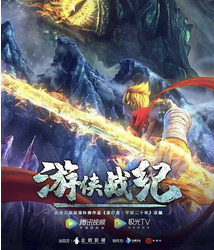

Director: Hu Liang Screenwriter: Hu Liang / Luo Xiaojiu / Ji Pingping Starring : Xie Tiantian / Peng Xiaopang / Jiangju / Shen Dawei / Wan Suwan / Xiao Zheng / / Sun Ye / Zhao Yang Xianglong / Meng / Wang Yuhang / Xu Zongzhe / Black Stone Minoru / Buyi / Gao Qichang / Meng Yin more Lv Shujun Genre: Science Fiction / Animation / Suspense / Adventure Country/Region of Production: Mainland China Language: Mandarin Chinese Date: 2021-07-27 (Mainland China) Number of episodes: 20 Single episode length: 20 minutes Also known as: Nightcrawler: Twenty Years of Peace / 平妖二十年 Type: Reimanging
Summary:
"The Chronicles of the Ranger" is adapted from the novel "Night Walker: Twenty Years of Peace". It tells the story of Hou Mo, an aspiring young man who has the potential ability of his genes in an accident and transformed from a small person to a knight who fights against the strong and helps the weak. Hou Mo, a young man drifting to the south, suffered an accident in 1998. Discovering that he has the blood of Night Walker hidden in his body, he is also the "Intelligent Stone Monkey". This is a bloodline cursed by God. He has a genetic defect that prevents him from living past his thirties. In order to survive, he had to step into that unheard-of world. Struggling desperately, he overcame his own shortcomings, surpassed himself, and gradually grew into a responsible and responsible young man. Together with a group of partners called the "Ranger Alliance" who also have special talents, they battled with wits and courage against the evil organization "The Ferryman" and completed their just mission as a member of the Ranger Alliance organization.
As a sci-fi and adventure-themed animation with urban characteristics, "The Chronicles of the Ranger" takes urban life as the background and genetic science fiction as the focus, explores unknown scientific mysteries, and promotes that ordinary people can become extraordinary and positive through hard work. When the protagonist Hou Mo faces the drastic changes in his own destiny and the oppression of external forces, he is always high-spirited, always hopeful, and always insists on the righteous choice. This film conveys to us a new era spirit of fighting against fate, seeking up and down, and being self-reliant and brave.
Source: https://movie.douban.com/subject/35170381/
Link: https://www.iyf.tv/play/2JxK4h9uzh0
#The Chronicles of the Ranger#游侠战纪#Nightcrawler: Twenty Years of Peace#平妖二十年#jttw media#jttw television#television#animation#reimaging#reimagining#continuation#sun wukong cameo#sun wukong
7 notes
·
View notes
Text

If You Could See The Sun by Ann Liang
Goodreads summary:
Alice Sun has always felt invisible at her elite Beijing international boarding school, where she’s the only scholarship student among China’s most rich and influential teens. But then she starts uncontrollably turning invisible—actually invisible. When her parents drop the news that they can no longer afford her tuition, even with the scholarship, Alice hatches a plan to monetize her strange new power—she’ll discover the scandalous secrets her classmates want to know, for a price. But as the tasks escalate from petty scandals to actual crimes, Alice must decide if it’s worth losing her conscience—or even her life.
I love urban fantasy. Like so much that maybe I would like fantasy fantasy if I gave it a shot but why would I give it a shot when cool books like this are out there?
Poor student at a wealthy school is not a new premise, but the nuances of Alice's situation upped the ante. If she has to leave her school where she is a top student Alice's options are to be a student lagging behind in a local Chinese speaking school, or going across the globe to face familiar discrimination and live with a distant relative. So I get it when my girl starts using her invisibility for monetary gain, and I can roll with the moral weirdness of some of it.
It's all fun until it gets VERY SERIOUS ALL OF THE SUDDEN?? Like 70% of the novel is reasonably increasingly complicated invisible heists then suddenly it gets VERY REAL but also not real at all because in a lot of ways there's not enough consequences.
From the jump Alice identifies her academic rival Henry as her ultimate enemy--ENEMY ENEMEY ENEMY--but at the drop of a hat asks him to go into business with her, then is like oH yeah but I hate him! And at one point is like oh wait guess we're dating then she and then and then--
and it's not will they won't they, she's confused and conflicted and feels both things at once. It's like the book itself dropped all stakes in the relationship when she went to him with her secret then acted like the stakes were still raised for the rest of it. In this, and the iron straight moral conflicts, it honestly felt sometimes like I was reading a middle grade book until a "fuck" popped up.
But oh my god the starring moment of the book is when Alice realizes she forgot she has a test and her breakdown bleeds off the paper. It's so intense and shame filled and that awful sticky foggy devastation that this is it this is the world falling apart was so real and visceral I had to stop reading for a beat!!
Despite having familiar tropes the book feels incredibly fresh. I love a good boarding school book and an international boarding school in China is a completely different playing field. The book ends with some pretty big questions unanswered, and if there was a sequel it would be my next book.
Not everything has to be edgy edgy complicated, and this is good fun especially for urban fantasy fans looking for a little romance.
Date Published: Oct 11, 2022
Date Read: May 9, 2024
Rating: 3.5/5 ghosts
#if you could see the sun#if you could see the sun by ann liang#book reviews#htbh reviews#ya lit#young adult literature#ann liang
2 notes
·
View notes
Text
Blog #2
A monumental film in the realm of Japanese horror cinema during the 1990’s and 2000’s is Hideo Nakata's "Ringu" (1998). This iconic film, based on the novel by Koji Suzuki, introduced audiences to a chilling tale of supernatural terror that continues to captivate viewers to this day. In this blog entry, we will delve into the depths of "Ringu," exploring its haunting narrative, analyzing a key scene, and examining its enduring legacy in the world of horror cinema.
The film begins with the discovery of the disturbing legend surrounding a cursed videotape. According to the legend, anyone who watches the tape will receive a phone call immediately afterward, forewarning them of their death in seven days. When four teenagers mysteriously die on the same night, Reiko becomes intrigued by the story and begins investigating. Reiko discovers that her niece, Tomoko, was one of the victims and decides to dive into the mystery behind the cursed videotape to save herself and her son, Yoichi, who also watched the tape. Reiko employs the help of her ex-husband, Ryuji Takayama, a university professor specializing in folklore. Reiko proceeds to track down the origins of the tape and finds its connection to a remote mountain resort. As Reiko digs deeper, she uncovers the tragic story of Sadako Yamamura, a young girl with psychic powers who was murdered and thrown into a well years earlier. It is revealed that Sadako's vengeful spirit is responsible for the curse, seeking retribution for her untimely death. Reiko learns that Sadako's spirit has manifested itself in the form of a disturbing video that serves as a conduit for her evil powers. With time running out, Reiko and Ryuji race against the clock to break the curse and save themselves from Sadako's wrath. They discover that the only way to lift the curse is to make a copy of the cursed videotape and show it to someone else, passing on the curse to another unwitting victim. In a race against time, Reiko and Ryuji race to uncover the truth behind Sadako's death and find a way to stop her vengeful spirit before it's too late. Their investigation leads them to a remote cabin where Sadako's remains are buried, and they must confront the terrifying truth of her existence to break the curse once and for all.

"Ringu" is celebrated for its atmospheric tension, chilling imagery, and psychological horror, becoming a seminal work in Japanese horror cinema and inspiring numerous adaptations and sequels both in Japan and abroad. With its innovative storytelling and iconic imagery, "Ringu" continues to captivate audiences with its tale of supernatural terror and the enduring power of urban legends.
One of the most iconic scenes in "Ringu" occurs when Reiko and her ex-husband, Ryuji Takayama, watch the cursed videotape together. The scene is fraught with tension as the eerie images on the tape slowly reveal themselves, accompanied by a haunting soundtrack that sends shivers down the spine of the viewer. As Reiko and Ryuji watch in horror, they realize the true nature of the curse and the dire consequences they face if they cannot solve the mystery in time. This scene effectively captures the sense of dread and impending doom that pervades the entire film, setting the stage for the terrifying events that unfold.

"Ringu" (1998) remains a pivotal work in Japanese horror cinema, captivating audience all over the globe with its eerie atmosphere, chilling narrative, and unforgettable imagery. “Ringu” (1998) has also inspired western cinema through its exploration of supernatural terror and psychological horror, the film continues to resonate with viewers and inspire filmmakers around the world as we see in the American remake “The Ring” (2002). As we unravel the mysteries of "Ringu," we uncover a tale of fear and dread that transcends cultural boundaries and leaves an indelible mark on the annals of horror cinema.
How does J-horror classic Ring (1998) compare to its 2002 Hollywood remake? | South China Morning Post (scmp.com)
It Came From the East... Japanese Horror Cinema in the Age of Globalization - Gnovis Journal (georgetown.edu)
youtube
2 notes
·
View notes
Text
Discovering the Best Time to Travel to Hong Kong Weather Guide

Hong Kong, a vibrant metropolis nestled on the southeastern coast of China, beckons travelers with its captivating blend of tradition and modernity, bustling streets, and culinary delights. Choosing the best time to visit this dynamic city involves considering various factors, with weather playing a significant role in shaping the travel experience. Here's a comprehensive guide to help you plan your trip to Hong Kong based on weather conditions:
1. Autumn (September to November):
Weather: Autumn marks the transition from the hot and humid summer months to cooler and more comfortable temperatures. Expect pleasantly warm days with lower humidity levels and cooler evenings.
Highlights: This season offers ideal weather for exploring Hong Kong's outdoor attractions, such as hiking trails, beaches, and scenic viewpoints. It's also a great time for cultural events and festivals, including the Mid-Autumn Festival and the Hong Kong Wine & Dine Festival.
2. Winter (December to February):
Weather: Hong Kong experiences mild winters characterized by cool and dry conditions. Daytime temperatures range from mild to cool, while evenings can be chilly. Rainfall is relatively low during this season.
Highlights: Winter is perfect for exploring Hong Kong's urban attractions, such as shopping districts, markets, and cultural landmarks. It's also an excellent time to indulge in hot pot dining or enjoy outdoor activities without the discomfort of summer humidity.
3. Spring (March to May):
Weather: Spring brings pleasant weather to Hong Kong, with gradually warming temperatures and increasing humidity. Expect mild to warm days and comfortable evenings. Showers are more frequent, especially towards the end of spring.
Highlights: Spring is an ideal time for outdoor adventures and sightseeing, as the city bursts into bloom with colorful flowers and lush greenery. Don't miss the annual Hong Kong Arts Festival, showcasing a diverse range of performing arts.
4. Summer (June to August):
Weather: Hong Kong's summers are hot, humid, and characterized by frequent rain showers and occasional typhoons. Daytime temperatures soar, often accompanied by high humidity levels, making outdoor activities challenging.
Highlights: Despite the heat and humidity, summer offers opportunities to experience Hong Kong's vibrant culture, culinary scene, and indoor attractions, such as museums, art galleries, and air-conditioned shopping malls. Water-based activities like swimming and water sports are also popular.
Conclusion: Choosing the best tim visit Hong Kong depends on your preferences and interests. Autumn and winter are generally considered the most comfortable seasons for exploring the city, with milder temperatures and lower humidity levels. However, each season offers its own unique experiences and attractions, allowing visitors to discover the diverse charm of Hong Kong throughout the year. Whether you're drawn to outdoor adventures, cultural festivals, or urban exploration, Hong Kong welcomes you with open arms, ready to unveil its wonders in every season.
2 notes
·
View notes